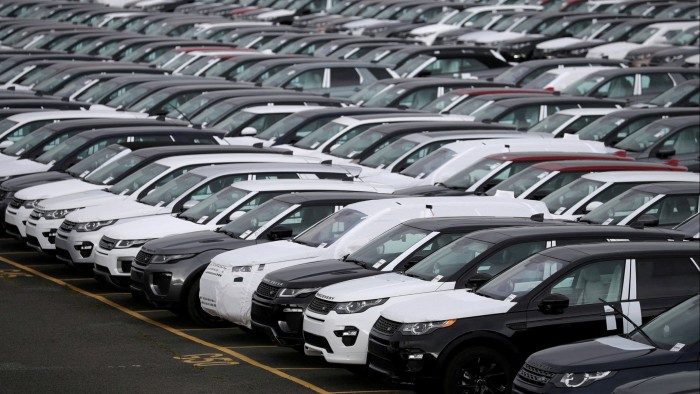Unlock the White House Watch newsletter for free
Your guide to what Trump’s second term means for Washington, business and the world
Lower US tariffs on British steel, aluminium and car exports are unlikely to take effect for weeks, according to UK officials, as companies complain about continued uncertainty about the levies despite a bilateral trade deal.
Prime Minister Sir Keir Starmer said last week the US had agreed in the trade accord to “remove tariffs” on UK steel and aluminium, as well as cut levies on British car exports to 10 per cent for an annual quota of 100,000 vehicles.
US commerce secretary Howard Lutnick also signalled UK aerospace had secured a zero tariff rate, saying Washington had “agreed to let Rolls-Royce engines and those kinds of plane parts come over tariff free”.
Officials in London and Washington said discussions were ongoing over how much UK steel and aluminium the US would exempt from President Donald Trump’s 25 per cent global tariff on those metals.
UK officials also said Washington would need to follow due process in reducing tariffs on these three categories of British exports in the coming weeks, citing in particular the need to finalise bespoke quotas for steel and aluminium.
They added it was more important to get the balance right for British industry than to push for a faster implementation of the UK-US accord, adding it was normal for trade deals to take several months to take effect.
To adjust the US tariffs on UK cars, Washington would need to issue a document formally amending them and altering the level of duties collected by American customs officials.
The UK’s five-page deal with the US aimed at reducing the impact of Trump’s tariffs was completed about five weeks after he unveiled steep levies against almost every major trading partner.
The limited nature of the accord stands in contrast to the free trade agreements struck by the US with other nations, which typically result in documents ranging from hundreds to a few thousand pages and can take years to finalise.
UK industry expressed concern at the uncertainty around the trade deal with the US, with executives at British carmakers saying they were still subject to a 27.5 per cent levy on exports to America.
On Tuesday, Frank-Steffen Walliser, the boss of Bentley, the UK subsidiary of Volkswagen Group, told a Financial Times conference that uncertainty about when the US tariff would change on British car exports was leading consumers to delay purchases.
UK aerospace executives said despite verbal reassurances from the British government that the sector would no longer be subject to a 10 per cent US tariff they had not received written confirmation.
One executive said the industry needed “reassurance” the promised zero per cent tariffs would materialise. “We are confident it will come but it won’t come just yet,” they added.
Adrian Musgrave, head of sales at Bridgnorth Aluminium, the only aluminium coil producer in the UK, said the company’s initial sense of “positivity” when the trade deal was announced had given way to one of “frustration”.
“There is no timeline and no detail about this agreement,” he added.
Gareth Stace, director-general of UK Steel, a trade body, said “question marks remain over the finer details”, particularly over how US supply chain requirements would work in practice.
The UK was previously allowed to export up to 500,000 tonnes of steel a year to the US tariff-free under an agreement struck in 2022 with then- president Joe Biden.
There is also concern in British industry over what implication, if any, a new US national security probe into imports of aircraft will have on the UK.
The probe could lead to fresh tariffs on US imports of commercial jet engines and parts, and British executives said it was not clear if the trade deal meant UK industry would be exempt.
David Henig, a former UK trade negotiator now at the European Centre for International Political Economy think-tank, said the uncertainty around the trade accord highlighted how rapidly the UK and US had moved to announce an agreement.
“The problem with doing a quick trade ‘deal’ like this is that nobody knows when or how it is to be implemented, which leaves business winners and losers wondering what is going on and indeed whether it will happen at all,” he added.
Recommended
On Wednesday, Conservative leader Kemi Badenoch used prime minister’s questions in parliament to pour scorn on the “tiny tariff deal” between the UK and US, which she said left Britain “in a worse position than we were”.
Starmer hit back that the deal was responsible for saving thousands of British jobs, including at Jaguar Land Rover and British Steel.
A UK government spokesperson said Britain “was the first to secure a deal with the US in a move that protects British business and British jobs across key sectors, from auto manufacturers to steel”.
“Businesses have been at the heart of our approach throughout, and we have engaged extensively with them to understand their needs,” they added.



